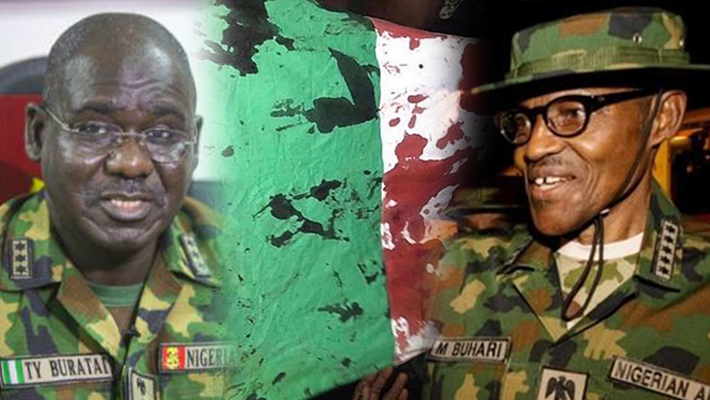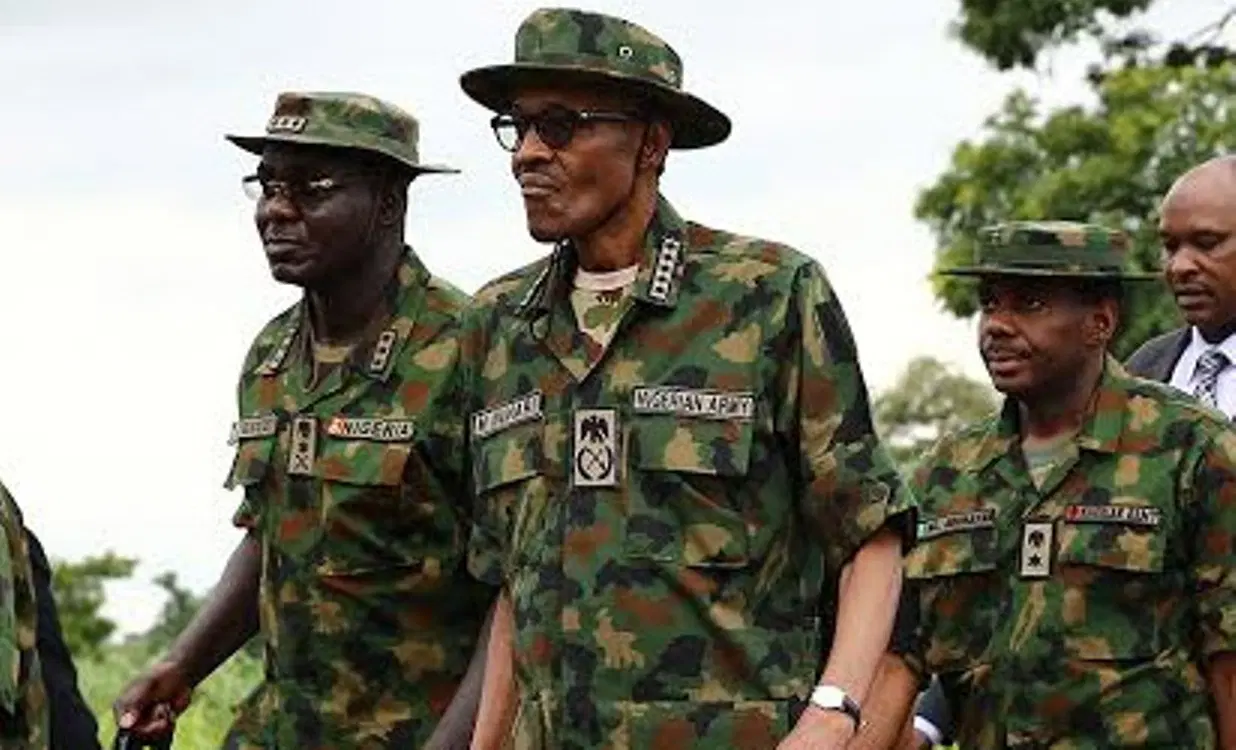A former Nigerian Army spokesman has portrayed the country’s leading defense institution as a corrupt, criminal, and murderous organization before a Canadian asylum court in Ottawa.
However, Said Agborere Hammed insisted that he did not participate in the crimes against humanity committed by his former employer.
He claimed he was under duress when issuing military statements that either suppressed or significantly downplayed atrocities against Nigerian civilians.

Seeking asylum in Canada during his hearing at the Refugee Protection Division (RPD), Mr. Hammed stated that, although his name appeared on some press releases, he doubted their accuracy and had no control over their content.
He applied for asylum alongside his wife and three children, alleging persecution by family members after his conversion to Christianity. According to him, the persecution took place between November 15, 1998, and January 24, 2012.
A retired major, Mr. Hammed said he fled with his family after a fatwa was issued for his execution in Nigeria.
Court documents seen by Peoples Gazette stated that Mr Hammed, at the hearing, asserted that “he was working under duress or under authority as a public relations officer and his espoused fear of prosecution should he leave the Army.”
“His evidence was corroborated by the documentary evidence concerning the environment of fear, injustice, duress and the lack of due process in the Nigerian military,” the document said.
Documentary evidence indicated that the Nigerian Army “committed crimes against humanity on numerous occasions” during Mr. Hammed’s tenure. However, the Refugee Protection Division (RPD) found his claims of innocence to be credible.
Although Mr. Hammed served as the Army’s spokesperson, the RPD determined that his role did not constitute a “significant contribution” to the Army’s crimes.
His duties were carried out under a superior officer, and he was unable to leave due to the risk of persecution.
Immigration officials noted that had Mr. Hammed fled after witnessing widespread extrajudicial executions, rights abuses, and corruption within the military, he could have been declared a deserter and prosecuted.
A spokesperson for the Nigerian Army did not respond to The Gazette’s request for comment regarding Mr. Hammed’s disclosures to Canadian authorities.
This case represents another chapter in Canada’s judicial decisions concerning former Nigerian security personnel seeking asylum. The Gazette had previously reported on the cases of two Nigerian police officers, Olushola Popoola and Charles Ukoniwe, who were denied asylum due to their affiliation with the Nigeria Police Force—an institution with a documented history of criminal conduct similar to that of the Nigerian military.
Canada’s Ministry of Citizenship and Immigration had sought a judicial review of the RPD’s March 6, 2019, decision to allow Mr. Hammed and his family to remain in Canada.
The minister argued that Mr. Hammed was complicit in the Army’s crimes, asserting that his pro-military press statements “minimized the Army’s transgressions” and “significantly contributed to the impunity” with which the military operated.
In response, Mr. Hammed maintained that the ministry’s evidence was “not inconsistent” with his position or the RPD’s findings. He insisted that he merely relayed information from his superiors and was not in the field to verify its accuracy.
“The crimes committed by the Nigerian Army were widely reported in international media, and the content of those reports often differed from what was provided by the Army’s public relations team,” he added.
On January 27, 2020, Canadian federal court judge Richard Bell dismissed the minister’s application for judicial review, upholding the RPD’s decision.
“I find the minister’s argument that the RPD failed to properly consider whether Mr Hammed significantly contributed to the crimes against humanity committed by the Nigerian Army to have no merit,” Mr Bell said.
Once a symbol of hope for restoring peace in war-torn African nations, the Nigerian Army’s reputation has significantly declined due to deep-rooted politicization and repeated involvement in widespread violence, destruction, and egregious human rights abuses.
Since 1999, the army has been responsible for massacres in Zaki Biam, Odi, Obigbo, and Zaria, among other locations.
In October 2020, soldiers opened fire on peaceful protesters in Lekki, Lagos, killing at least nine and injuring dozens—an act that sparked global condemnation.
Despite these atrocities, few, if any, military leaders have ever been held accountable for the killing of the very citizens they were meant to protect.
(Peoplesgazette)
Follow the Parallel Facts channel on WhatsApp: https://whatsapp.com/channel/0029VaCQSAoHgZWiDjR3Kn2E









Leave a Reply